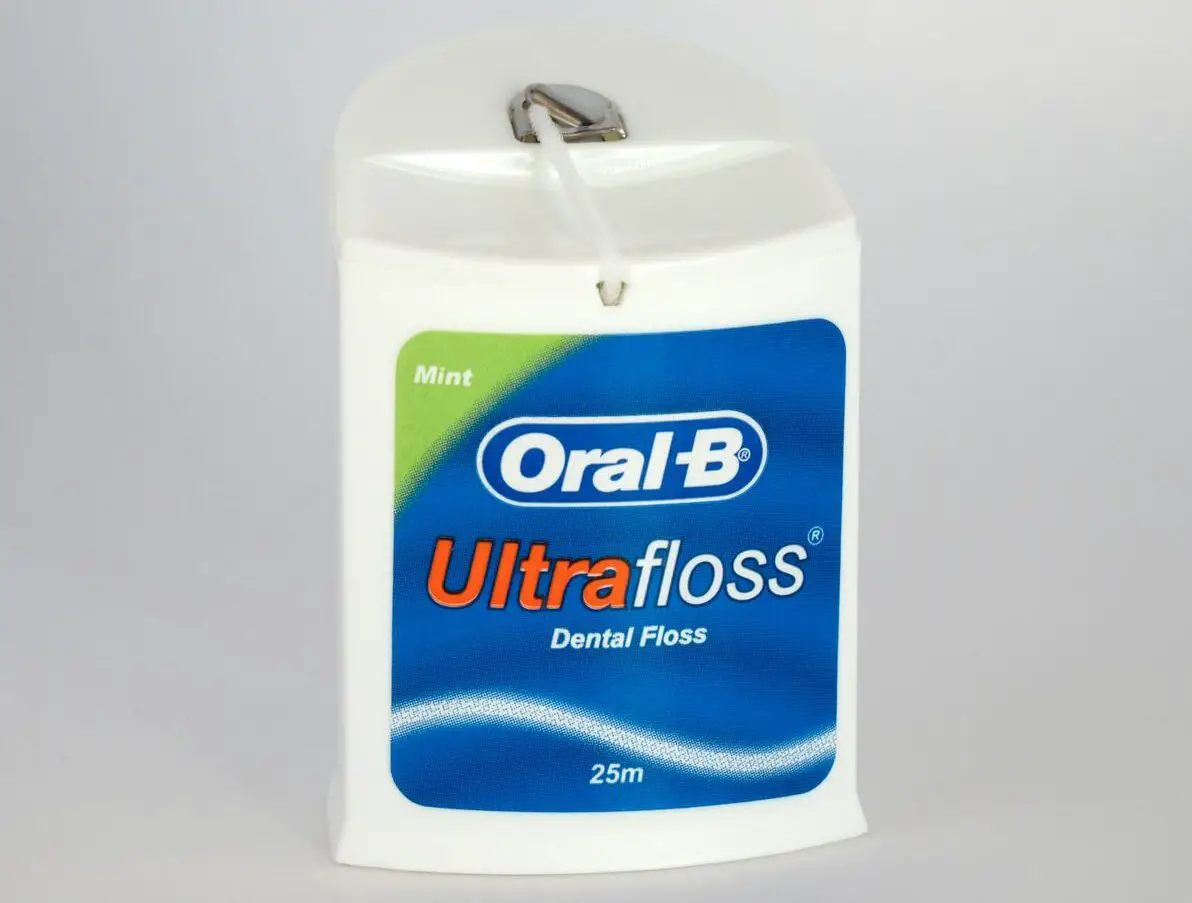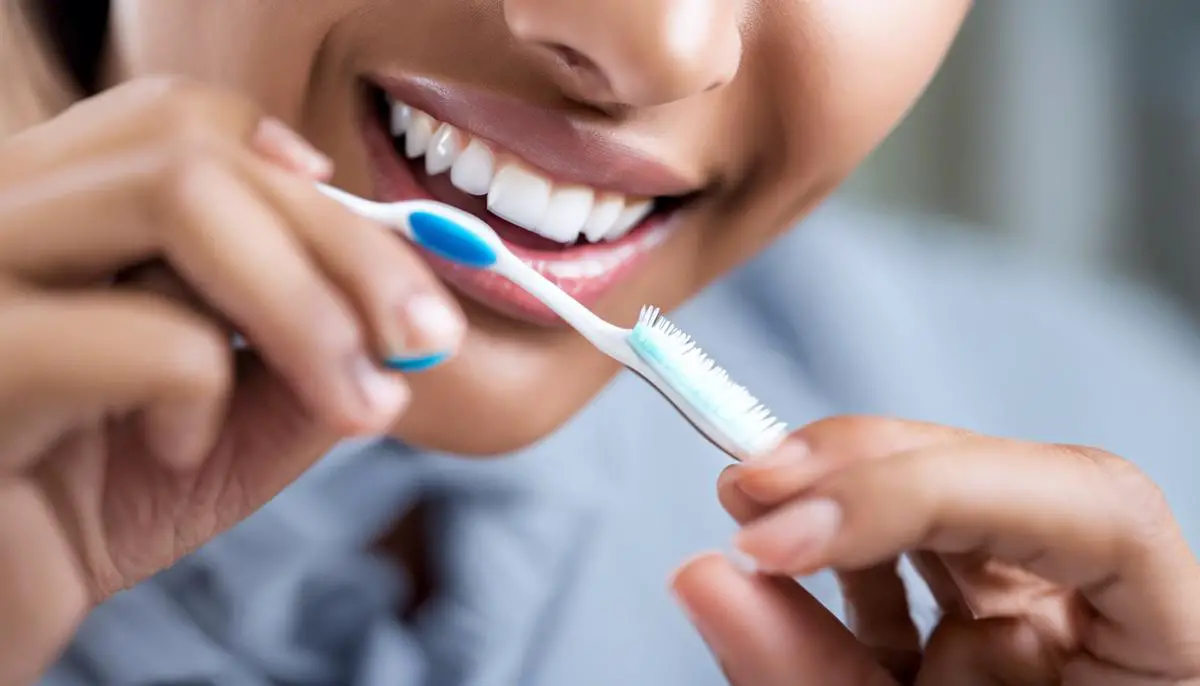Gum disease, a common yet potentially serious condition, can significantly affect one’s oral and overall health if left unchecked. Fortunately, by arming ourselves with the knowledge and tools for prevention, we can safeguard our gums and ensure a healthier smile. This begins with establishing a diligent oral hygiene routine that goes beyond the mere act of brushing.
It encompasses an array of practices such as the right brushing techniques, the wise choice of toothbrushes and toothpaste, the non-negotiable habit of flossing, and the judicious use of mouthwash. You can tailor these to effectively combat the onset of gum disease. But it doesn’t end there; our journey to optimal oral health is a holistic endeavor.
Oral Hygiene Routine
Within the realm of dental research and periodontology, the significance of oral hygiene is paramount. The meticulous maintenance of one’s oral environment is not a mere recommendation; it is an imperative measure for the prevention of periodontal disease. This text delineates the mechanisms through which proper oral hygiene forestalls the development of gum disease, signifying its vital role in oral health.
Gum disease, or periodontal disease, encompasses a spectrum of inflammatory conditions affecting the tissues that surround and support the teeth. This pathological state ranges from simple gum inflammation, known as gingivitis, to more severe conditions such as periodontitis.
This can lead to the degradation of the supporting bone structure and tooth loss. The etiology of gum disease implicates a complex interaction among dental plaque, oral microbiota, and the host’s immune response.
Prophylactic Oral Hygiene Practices
- Plaque Removal: The cornerstone of preventing gum disease is the routine removal of dental plaque. This bacterial biofilm, if left undisturbed, engenders an inflammatory response in the gingiva. Regular brushing, at least twice daily with fluoride-containing toothpaste, is critical in disorganizing this biofilm and impeding its maturation.
- Interdental Cleaning: Flossing or using interdental brushes daily is an adjunctive practice to brushing, as these tools are specifically designed to disrupt and remove plaque from areas that toothbrush bristles cannot sufficiently reach. This includes the interproximal spaces between the teeth, which are particularly susceptible to plaque accumulation and subsequent gingivitis.
- Antimicrobial Mouthwashes: The adjunctive utilization of therapeutic mouthwashes with antimicrobial properties can provide a chemical means to further mitigate plaque accumulation and reduce oral bacterial load. Mouthwashes containing chlorhexidine or essential oils have been shown to possess significant anti-plaque effects.
- Dietary Considerations: Nutritional intake and dietary habits play a regulatory role in oral microbial ecology and plaque pH. The limitation of fermentable carbohydrates, especially sucrose, and frequent consumption of foods with anti-inflammatory properties are recommended to diminish the risk of plaque-induced gingivitis.
- Regular Dental Check-Ups: Professional cleanings and assessments by a dental healthcare provider are indispensable for the timely detection and management of plaque accumulation, calibrating oral hygiene practices, and arresting early stages of gum disease.
Preventing Gum Disease
The pathogenesis of gum disease is largely preventable with a rigorous oral hygiene protocol. Effective plaque control through mechanical and chemical means alleviates the microbial challenge to the gingival tissue and reduces the likelihood of a systemic inflammatory response.
The consequential preventive benefits extend beyond gingival health, as there is a well-established association between periodontal disease and systemic health conditions such as cardiovascular disease, diabetes mellitus, and others.
In conclusion, proper oral hygiene practices are the mainstay in the prevention of gum disease. Adherence to a systematic cleaning regimen, combined with regular professional evaluation and care, is instrumental in safeguarding against the initiation and progression of periodontal disease.
Through these means, one can maintain the integrity of the oral environment, contributing not only to dental health but also to the overall well-being of the individual.

The Importance of Regular Dental Check-Ups
Regular dental check-ups stand as a critical measure in the preemptive approach to gum disease, primarily by facilitating early detection and prompt intervention. The removal of plaque and the calculus that may form, despite stringent oral hygiene practices, necessitates professional expertise. During these visits, dental professionals execute a thorough cleaning process that surpasses the attainable results of home care.
Detecting gum disease in its nascent stages is paramount. Regular appointments enable dentists to spot the subtle signs of gingivitis, which may elude even the most vigilant individuals. Without professional scrutiny, gingivitis may silently progress to periodontitis, an advanced and more destructive stage of gum disease, potentially leading to tooth loss and necessitating complex treatments.
Moreover, dental practitioners equip patients with tailored guidance on improving their oral care regimen, addressing specific vulnerabilities that could predispose them to gum disease. They offer bespoke advice on brushing techniques and the selection of suitable oral hygiene tools, which are instrumental in forestalling the progression of gum maladies.
Saliva Production
Saliva production and flow rate, aspects typically overlooked, also play a pivotal role in gum health. Dental professionals can assess these during check-ups and recommend interventions if any abnormalities are detected—interventions that effectively contribute to the inhibition of microbial proliferation within the oral cavity.
Additionally, professional examinations often include screening for oral cancer and other conditions that manifest symptoms in the mouth. By identifying such issues early, treatment outcomes can be substantially improved—a testament to the broader implications of frequent dental evaluations.
In the fight against gum disease, consider regular dental check-ups as an indispensable stratagem. Through them, one builds a collaborative relationship with their dentist, a partnership that fortifies the defenses against oral afflictions and enhances the chances for maintaining a robust periodontal condition throughout one’s lifespan.

Healthy Diet and Lifestyle
Whilst meticulous oral hygiene practices form the bedrock of preventing gum disease, diet, and lifestyle choices synergistically contribute to the promotion of periodontal health. The adoption of favorable dietary habits and lifestyle interventions can substantially reduce the risk of developing gum pathological conditions, thereby playing a pivotal role in the holistic management of oral health.
Nutritional Interventions
Emerging research underscores the influential role of certain nutrients in modulating inflammatory processes and tissue repair within the oral cavity. A diet rich in essential vitamins, such as vitamins C, D, and A, along with minerals like calcium and phosphorus, strengthens the integrity of the periodontium.
Moreover, an optimal consumption of antioxidants—especially those found in fruits, vegetables, nuts, and green tea—may quell oxidative stress and inflammatory mediators implicated in gum disease pathogenesis.
Conversely, high-sugar diets have been directly correlated with increased dental plaque formation, accentuating the risk of gingivitis and subsequent periodontitis. Thus, minimizing the intake of sucrose-laden foods and beverages is recommended to mitigate cariogenic activities.
Lifestyle Considerations
Smoking Cessation: It is well-documented that smoking exerts deleterious effects on gum health, disrupting the normal function of gum tissue cells and impeding blood flow. Smokers exhibit a greater susceptibility to periodontal diseases and manifest a diminished response to periodontal therapy. Discontinuing tobacco use is a critical measure in preserving the periodontium’s resilience and reparative capacities.
Stress Management: Chronic stress acts as an insidious factor in compromising oral health. It can disrupt the equilibrium of the oral microbiome and exacerbate inflammatory conditions. Through stress reduction techniques such as meditation, exercise, and adequate rest, individuals may bolster their body’s inherent defense mechanisms against infectious assaults on the gums.
Weight Control and Exercise: Obesity has been implicated as a risk factor for periodontitis, attributed to systemic inflammation. A regimen that integrates regular physical activity not only contributes to maintaining a healthy weight but also enhances the body’s anti-inflammatory response, creating a salutary environment conducive to gum health.
Alcohol Reduction: High alcohol consumption has been associated with an increased incidence of gum disease. Alcohol’s drying effect on the mouth may reduce saliva flow, which naturally protects the gums and teeth. Limiting alcohol intake is advisable to mitigate its negative impact on oral flora and saliva production.
Balance of Microbiota: Probiotics, which are beneficial bacteria, may assist in the re-establishment of a healthful balance of oral microbiota when dysbiosis occurs. Incorporating probiotic-rich foods or supplements may confer an adjunctive benefit to gum health, although further research is required to substantiate their efficacy conclusively.
Hydration: Adequate fluid intake is paramount in facilitating saliva production and flow, thus naturally rinsing the oral cavity of food particles and buffering the acidic pH that contributes to plaque buildup.
In summary, the confluence of a nutrient-dense diet, the cessation of harmful habits, and the adoption of behaviors aimed at stress and weight management can substantially augment efforts to fend off gum disease. Understanding the full spectrum of modifiable factors that influence periodontal health goes beyond the confines of conventional oral hygiene routines. An integrative approach that intertwines dietary, lifestyle, and clinical strategies offers the most rigorous defense against the insidious onset of gum disease.

How to Prevent Gum Disease and Promote Oral Health
Embarking on the road to preventing gum disease is a commitment to our well-being that extends far beyond oral health. It’s a multi-faceted approach that entails a combination of personal diligence and expert care. At its core, this endeavor is greatly enhanced by a supportive lifestyle, including a nutritious diet and smart lifestyle choices.
By maintaining this course of action, each of us can cultivate a strong foundation for our oral health, ensuring that our gums remain as healthy and resilient as the smiles they frame. Ultimately, it’s not just about the prevention of gum disease. It’s about embracing a life where a radiant smile is a reflection of our overall health and happiness.







